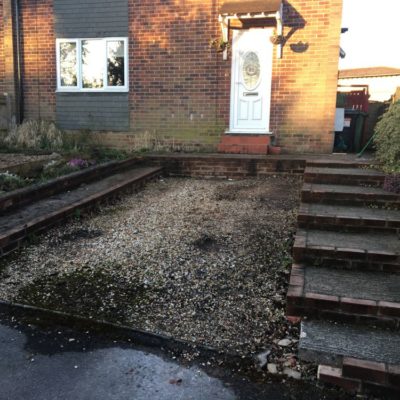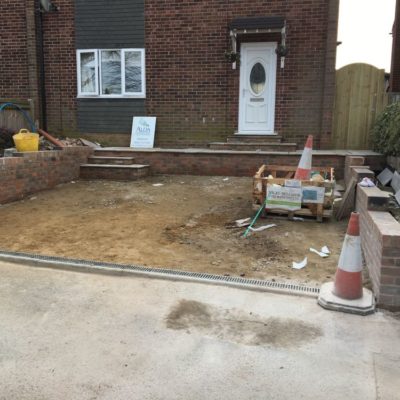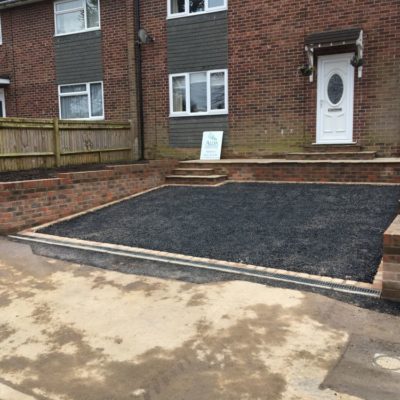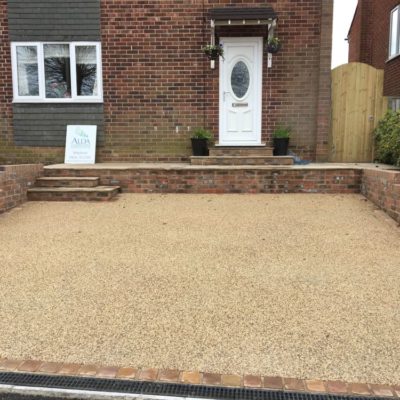Resin: A Versatile Alternative Landscaping Product
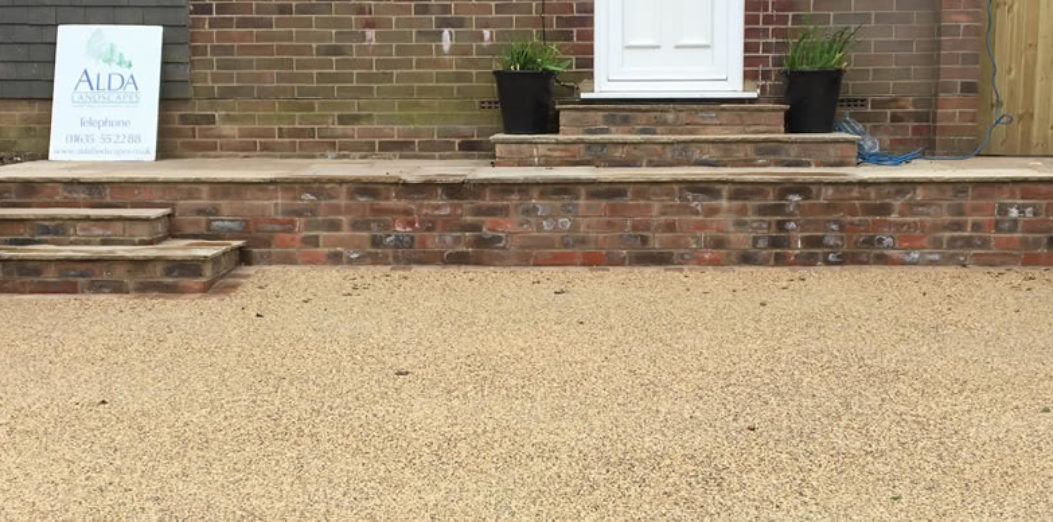
We are now an accredited installer of resin products from the The Resin Mill and recently used it on a driveway in a front garden in Newbury. Our client’s requirement was a durable, good looking and low maintenance finish to their driveway; resin proved to be just the answer. The resin finish has made their driveway appear wider and now provides the ideal space to park their cars.
Why use Resin?
Unlike some paving products resin provides an attractive, uniform finished surface and is ideal in the construction of driveways, paths and patios. As well as being a lot quicker to lay than traditional paving, it is also weed resistant – another advantage to using it as a landscaping product in gardens.
It is an eco-friendly, SuDS (Sustainable Urban Drainage Systems) compliant product – allowing water to drain naturally through the surface, reducing puddles and slippage. It is sourced from natural stone from quarries throughout the UK and Europe.
Another benefit of resin is that it comes in a surprisingly wide variety of colours and textured mixes from the subtle greys found in ‘Titanium’ – which we recently laid as an area of patio at a garden in Reading – to the red tones of ‘Merit’ and the natural browns of ‘ Farmhouse Gold’. You can view available colours on The Resin Mill website here. It is even possible to create bespoke colours for your project should you require it, with samples available to order. Some of the resin mixes come with a UV rating; they are more expensive but will guarantee that the colour of your path or driveway does not fade over time.
Mini Case Study: A Resin Bound Driveway
What’s the Catch?
It’s hard to think of any significant downsides – resin is a high quality, durable and eco-friendly material, and performs well in both hot and cold environment (good for the UK, given the recent extremes of temperature we’ve experienced!).
It can’t be installed when the outside temperature is very high (as the material sets too quickly), but this is rarely a problem in the UK.
Compared to other surface options for driveways, resin mixes are more expensive – you will pay more than you would for laying shingle or the popular block paving alternatives. However, when doing a cost comparison, it’s important to remember that a resin bound driveway does not require planning permission (as it conforms to SuDS – see above), and also the surface is very durable low maintenance. It’s not the cheap option, but when all factors are considered, it often proves to be good value for money.
Resin Bound or Resin Bonded?
There are two ways of installing a resin surface – resin bonded and resin bound. The names are very similar and often get used interchangeably – so it all gets very confusing! But in fact the two systems are very different and have different applications, so it’s important to make sure you know what you’re getting.
Resin Bonded Gravel is applied in a “scatter coat” method – a layer of resin is spread across the surface and gravel is then scattered on top. It looks similar to loose gravel; only the bottom of the gravel will stick to the resin and any loose gravel can be removed if required. This method is not permeable, and the top layer is subject to exposure and resultant wear. It’s therefore only suitable for light foot traffic.
Resin Bound Gravel is created by mixing gravel and resin; the gravel is fully coated in the resin before being hand trowelled and compressed onto a suitable solid base (e.g. open tarmac as shown above). Because it’s permeable and porous, no planning permission is required – it’s SuDS compliant. This method creates a stunning smooth and seamless finish with no loose gravel – it’s hard wearing, durable and long lasting, and is suitable for driveways, paths and patios. This is the method we normally use at ALDA Landscapes.
If you are thinking about a new paving or surfaced area in your garden, resin is a worthwhile alternative to consider. Contact us today to discuss your project.
